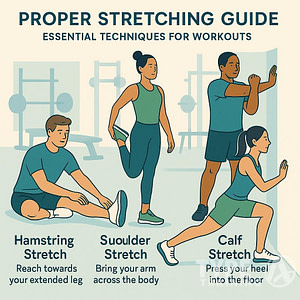Melatonin is known as your body’s natural sleep hormone, playing a critical role in regulating your circadian rhythms.
By understanding how melatonin works, you can take steps to naturally enhance its production and improve your overall sleep quality.
This powerful hormone is produced by the pineal gland in response to darkness, signaling to your body that it’s time to wind down.
Popular posts:
To boost melatonin production, consider simple lifestyle changes such as reducing exposure to bright lights at night and making your environment conducive to relaxation.
Enjoying a warm bath before bed or getting early morning sunlight can also help increase melatonin levels naturally.
These small adjustments can make a significant difference in how well you sleep.
You might also explore dietary choices, as certain foods are linked to melatonin production.
Incorporating these foods into your diet could complement your efforts in promoting better sleep through natural means.
With a few intentional changes, you can enhance the natural sleep aid capabilities of melatonin, ensuring a restful night’s sleep.
Melatonin and the Circadian Rhythm
Melatonin plays a crucial role in regulating the sleep-wake cycle by acting on the body’s internal clock.
Understanding how melatonin interacts with the circadian rhythm can illuminate its impact on sleep patterns, especially in relation to light exposure.
The Role of the Pineal Gland
The pineal gland, a small endocrine gland in the brain, is responsible for the production of melatonin.
This hormone is synthesized primarily during the night.
The pineal gland receives signals from the suprachiasmatic nucleus (SCN), which is the master clock of the body, to regulate melatonin synthesis.
This process helps reset the sleep-wake cycle, allowing you to maintain a consistent sleep pattern.
Any disruptions in this melatonin production can lead to imbalances in your circadian rhythm.
Understanding Circadian Rhythms
The circadian rhythm is an inherent 24-hour cycle in the biochemical, physiological, and behavioral processes of living organisms.
It is crucial for aligning your sleep patterns with environmental cues such as light and darkness.
Melatonin acts as a signal for darkness, reinforcing nighttime physiology. It helps regulate when you feel sleepy or alert.
By synchronizing your body’s internal clock through natural melatonin production, you can achieve better sleep quality and overall well-being.
Misalignment in circadian rhythms can result in sleep disorders.
Effects of Light Exposure
Light exposure significantly influences melatonin production.
Natural light promotes healthy circadian rhythms by inhibiting melatonin during the day, helping you feel awake.
Conversely, darkness triggers melatonin synthesis, supporting sleep.
Blue light from screens and artificial sources at night can suppress melatonin, affecting your sleep-wake cycle.
Minimizing blue light exposure before bedtime can enhance natural melatonin production, promoting restorative sleep.
Consider using dim lights and avoiding electronic devices in the evening to support your circadian rhythm.
Health Implications of Melatonin
Melatonin plays a significant role in managing sleep disorders, influencing mental health, and impacting physical health issues such as cardiovascular disease and obesity.
Sleep Disorders and Insomnia
Melatonin is widely recognized for its ability to help regulate sleep patterns.
If you struggle with sleep disorders like insomnia, melatonin supplements may help regulate your sleep-wake cycle, making it easier to fall and stay asleep.
This is particularly beneficial for shift workers or those experiencing jet lag.
Research indicates melatonin’s role in enhancing sleep quality by promoting a faster sleep onset and prolonged sleep duration.
By modulating your body’s natural rhythms, melatonin helps synchronize disrupted circadian cycles, making it a useful aid in alleviating sleep-related challenges.
Melatonin and Mental Health
Your mental health can be intricately tied to melatonin levels.
This hormone influences mood regulation and stress response, playing a part in conditions like depression and anxiety.
Melatonin’s antioxidant properties may protect brain cells, potentially reducing the risk of neurodegenerative diseases.
Studies suggest it can alleviate symptoms of depression by improving sleep quality, thus enhancing overall mental well-being.
By supporting sleep and regulating your circadian rhythms, melatonin may contribute to stabilizing mood swings and improving resilience to stress and anxiety-related disorders.
If you experience mood disturbances, considering melatonin as part of a broader treatment plan with your healthcare provider might prove beneficial.
Melatonin’s Effect on Physical Health
Melatonin’s role extends beyond sleep and mental health, impacting vital physical health aspects.
It is linked to cardiovascular health, with potential benefits in lowering high
Moreover, its antioxidant properties may offer protection against oxidative stress, which is linked to conditions like cancer and obesity.
Some research suggests that melatonin can enhance immune function, supporting overall health.
Additionally, melatonin may play a protective role in neurodegenerative diseases by mitigating neural damage.
By incorporating melatonin into your health regimen, you may benefit from its wide-ranging effects on both prevention and management of various health issues.
Lifestyle and Environmental Factors
Melatonin production in your body can be influenced by various lifestyle and environmental factors. These include the types of foods you consume, your intake of stimulants and depressants, and your work or travel schedule.
Diet and Melatonin-Rich Foods
Certain foods can naturally boost melatonin levels and improve sleep quality.
For instance, cherries are a known natural source of melatonin, which can aid in enhancing sleep. Other melatonin-rich foods include tomatoes, olives, and walnuts.
Incorporating these into your diet can help regulate your sleep-wake cycle. While these foods alone can’t replace sleep aids, they offer a natural method to support your body’s melatonin levels.
Impact of Caffeine and Alcohol
Caffeine and alcohol consumption can negatively impact melatonin production.
Consuming caffeine can delay your body’s melatonin release, making it harder to fall asleep. It’s best to avoid caffeine in the afternoon and evening.
Similarly, although alcohol can initially make you feel sleepy, it can disrupt your sleep cycle later in the night, preventing the natural progression to deeper sleep stages.
Reducing alcohol intake, especially before bedtime, can help maintain melatonin levels and improve sleep quality.
Shift Work and Jet Lag
Shift work and jet lag are significant disruptors to your body’s natural circadian rhythm, affecting melatonin production.
Shift work can lead to an irregular sleep schedule, pushing your body’s internal clock off balance.
Traveling across time zones causes jet lag, temporarily hampering your body’s ability to adjust its melatonin levels.
To alleviate these effects, aim to regulate your exposure to light.
Gradually adjusting your sleep schedule before a trip or shift change can help your body synchronize its melatonin production more effectively.
Using Melatonin Supplements
Melatonin supplements can aid in regulating sleep patterns, especially for individuals with disrupted circadian rhythms.
While they can be beneficial, it is crucial to understand proper dosage, potential side effects, and considerations for specific populations to use them effectively and safely.
Recommended Dosage and Timing
The appropriate dosage for melatonin supplements can vary depending on age, health conditions, and sleep issues.
Generally, doses range from 0.5 to 5 mg, and it’s best to start with a lower dose.
Taking melatonin about 30 minutes to an hour before bedtime can help support a regular sleep cycle. You should adjust the timing based on specific needs, like jet lag or shift work.
For conditions like insomnia, higher doses may be recommended, but consulting with a health care provider first is advisable.
It’s important to note that melatonin is fast-acting, so timing is key for maximum effectiveness. A healthcare professional can provide personalized guidance on both timing and dosage.
Potential Side Effects and Risks
While melatonin supplements are generally well-tolerated, they can have side effects.
Common side effects include dizziness, headaches, and short-term feelings of depression. Some individuals might experience irritability or disrupted sleep patterns.
It is advisable not to operate heavy machinery or drive for at least four hours after consuming melatonin.
There is also the concern of interaction with other medications or exacerbating existing health conditions.
Consult with a healthcare provider before starting melatonin, especially if taking psychiatric medications or blood thinners.
Misuse or excessive use can lead to an increase in adverse effects, so it’s important to use melatonin under professional supervision.
Considerations for Specific Populations
Certain populations need to exercise caution when using melatonin.
Children, pregnant, and breastfeeding women should only use melatonin after consulting with healthcare professionals.
For older adults, considerations regarding other health conditions and medications are crucial, as melatonin can interfere with hormones and existing treatments.
Those with autoimmune diseases, epilepsy, or hormone-related cancers should consult a healthcare provider due to possible interactions.
Tailoring the use of melatonin to specific health needs ensures a balance between its benefits and any potential risks, emphasizing safety and effectiveness.
Enhancing Natural Melatonin Production
Boosting natural melatonin production involves adjusting your sleep habits, understanding the connection between serotonin and tryptophan, and being mindful of light exposure.
Focus on creating a nurturing environment conducive to melatonin synthesis, which can promote a more restful sleep.
Sleep Hygiene and Bedtime Routines
Having a consistent bedtime routine is a key strategy. Aim to go to bed and wake up at the same time every day, even on weekends. This helps regulate your body’s internal clock.
Consider relaxing activities before bed, such as a warm bath or reading a
It’s also advisable to keep your sleep environment cool, dark, and quiet. Using blackout curtains or an eye mask can help minimize light exposure that might disrupt melatonin production.
The Role of Serotonin and Tryptophan
Serotonin, a neurotransmitter, plays a crucial role in melatonin production. Your body synthesizes melatonin from serotonin, and serotonin itself comes from tryptophan, an essential amino acid.
Consuming foods high in tryptophan, such as turkey, nuts, seeds, and tofu, can support serotonin levels.
To boost serotonin naturally, ensure you’re getting plenty of sunlight during the day. This exposure not only increases serotonin availability but also helps regulate your circadian rhythm.
Managing Light and Technology Use
Light exposure has a significant impact on melatonin levels. In the evening, it’s essential to reduce blue light exposure from devices like smartphones and computers.
Consider using blue-light blocking glasses or installing apps that filter blue light to minimize interference with natural melatonin production.
About 90 minutes before bed, dim your lights and avoid screens to help stimulate melatonin release. Switching to warmer, dim lighting can enhance a sleep-friendly environment.
Creating a tech-free zone in the bedroom supports this effort and promotes better sleep.












